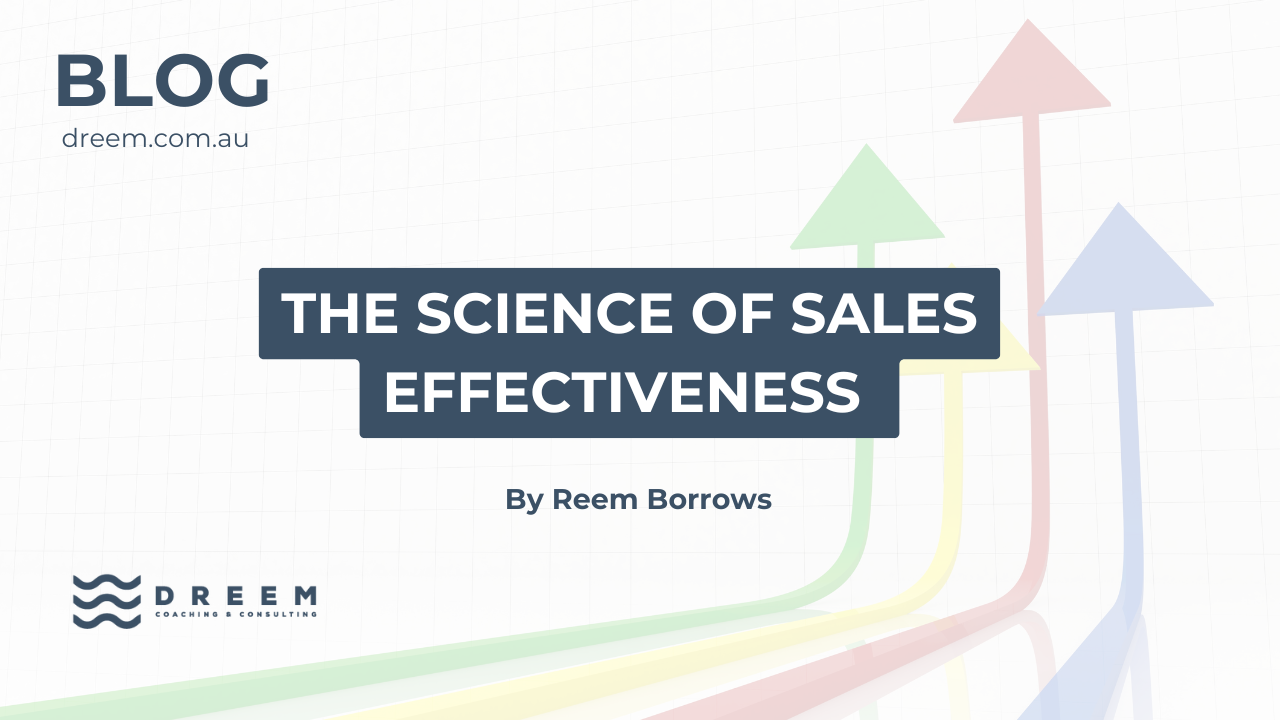
Selling isn’t a four-letter dirty word
Staff who think selling is a dirty word miss the point about what selling in pharmacy really means.
Patient health outcomes are central to pharmacy values, yet many pharmacy staff shy away from “selling” and have a very narrow perception of what it actually means. As a pharmacy assistant, you only begin to help patients and customers when you ask them questions to understand their true needs.
We need to demystify the sales process and take away its negative connotations because you cannot help anyone until you ‘sell’ to them.
Selling in pharmacy is about asking questions and finding out about customers’ needs. The way that it’s done is unique to selling in other competitor retail environments. As an example, if you walk into any Coles and pick up five packets of Panadol, no one will ask you any questions in the aisle or at the check-out. However, in pharmacy it’s a different story. We start the selling process by asking patients questions — even if it is at the till when they’ve already made their selection. By asking patients questions each and every time you engage with them, you will gain a greater understanding of their needs and help them with things they did not even know they needed help with.
There are three crucial things to remember when it comes to selling in pharmacy.
Firstly, people don’t generally come to pharmacy to window-shop—there’s a reason they are there and that’s to be helped with their health and wellbeing. It is your job to start helping them by asking questions.
Second, we need to consider basket size—but not in the way people think of it. Indeed, many pharmacists and pharmacy assistants I talk to think that ‘selling’ and ‘basket size’ are dirty words. They tell me: ‘I'm not selling in a convenience store or a petrol station’. So, the perception of what it is that we do in pharmacy has to change. As a wife and mother of two, for example, when I walk into a pharmacy, I have myself, my husband, and my two children to think about. There is always going to be more that I need than just the script I came in with.
It’s up to the pharmacy assistant to start asking me the right questions. Imagine if a staff member were also to ask: ‘Is there anything else I can help you with today? Or ‘Where else can I direct you today?’ These simple words can have a big impact on whether I leave the pharmacy with the additional things I actually need, or I walk out with only the script I came in to fill. If I leave with just the script filled, I may walk straight to Coles or Woolies, or resort to online ordering without receiving any advice or help. And that is a problem.
At this point I am self-diagnosing with no real expertise. Whereas, if I go into pharmacy and I buy Panadol I'm going to get questions around why I’m buying it, who is it for, how often are they going to take it and what else is going on. As pharmacy assistants you should be asking these types of questions in every single area of the pharmacy and for every single patient you interact with.
Thirdly, selling also involves thinking about how you are growing your returning customer base.
Many pharmacies use loyalty cards for this purpose but when you look at these types of programs, some pharmacies are only getting 25-30% of their total returning customers to sign up for them. We know adherence to medications and vitamins is low. We need our customers to return to ensure we are helping and encouraging them to ensure adherence. So, you should always be asking customers: ‘How are you and how are the kids—how are things going? Come back in with this card and we’ll find out how you are going, and we can help you maintain your health journey’. That’s what sales is in pharmacy—asking the right questions from the moment they walk in the door, with a reason to return.
My work with pharmacists and pharmacy assistants takes them through the sales mindset, explaining what it is and what it is not. In pharmacy, we pride ourselves on wanting to be the gold standard yet often claim we are not really involved in ‘selling’. We say the patient health outcome is our most important metric. This is why we need to understand the true meaning of selling which is about finding out all our patients needs and creating the right habits for them to return.
Moments of truth
The “Moments of Truth” is traditionally a marketing term for a customers journey with a brand, company product or service. It can be easily translated to the customer journey within your pharmacy.
There are at least four ‘moments of truth’ when a customer or patient walks in your pharmacy that we need to be aware of.
From the moment the customer walks in, to when they go to the dispensary (often all the way at the back of the store), look around the front of shop, then finally at the till before leaving, these are what I like to call ‘moments of truth’. These moments are about the patient journey and experience in your pharmacy. These are opportunities to engage and influence patient health outcomes.
During every single moment of truth, the patient must feel they are being looked after. It could involve asking if there is anything else that’s been worrying them. Or, if they’ve gone to the dispensary and they’re waiting for a script—we could be offering products they need to accompany their script. People think companion selling is simply a list of “things” we should tack on, but it’s more than that. It’s about making sure the patient gets the most effective treatment based on their needs. So, if a patient is in for iron tablets it may be that they need to be taking vitamin C as well—to aid in absorption. Not discussing this would be a missed opportunity for a better health outcome. We also know that up to 47% of purchases that could and should be bought in the pharmacy front of shop are being bought in other retail channels or people are shopping for them online.”
If you engage and interact with customers at these critical moments, you foster loyalty and return visits. Unfortunately, we often don’t do this. If you walk into your local pharmacy with a script and no one asks you anything, which happens far too often, you are far more likely to walk out with just the script filled. What a shame that is! Each time a patient enters your pharmacy, you have an opportunity to help them with all their health needs. Instead, we allow them to leave our pharmacy and give them the opportunity to visit a competitor, an alternate retail channel, or even order online and get no help at all.
At the till, you can ask about loyalty cards but consider what else you can offer them? What about hand sanitiser? It doesn’t have to be that but it’s about generating the idea in their mind that you are a one-stop-shop for a lot of things. We are creatures of habit, so we want to get our customers used to the idea that we are there to help them with all their health outcomes. And as mentioned, rarely does someone walk into pharmacy to window shop—people are there because they need help with something—so help them with everything they need.
It is vital that we change the perception of what selling is with every single staff member too, and importantly, every single person who walks in through the door. Many salespeople—and especially in pharmacy— fear rejection. We need to flip that mindset around. It’s your job and duty of care to ask those sales questions: ‘is there anything else you need?’ Or ‘do you know that you might get a bit of heartburn with that medication, so you may want to consider taking Omeprazole with it?’ Think about the duty of care we have in pharmacy.
Now that we know so much more about gut health, as an example, a patient should not be leaving a pharmacy with a filled antibiotic script without a probiotic. You should be seeing these questions as a part of your duty of care and offer the customer suggestions that will aid their healing. Do not fear questions. It’s your job to ask the questions and offer solutions, it’s the customer’s choice to say yes or no. It’s that simple.
Accountability
It is crucial that everyone is accountable for what they set out to achieve. Accountability in business is a critical component for success.
Ensure that everyone in the team is accountable for what they say they are going to do—this isn’t about Big Brother. You cannot improve if you are not accountable. With the right training, structure, operating rhythm, and support in place you will execute with great results.
Having an accountability framework is also important because people can become very task oriented. For example, a big order from one of the wholesalers comes in, you’ve got boxes and boxes everywhere and team members prioritise putting the stock away, so before you know it the customers’ needs are forgotten. Putting the stock away is important but never at the expense of great customer service.
Let’s say you want to go from 25% to 50% in loyalty card numbers as a first step. Put an accountability framework in place that incorporates the training you need to achieve those numbers; and any barriers you may think you will encounter. As a result, you just completed a 360 and closed the loop to make sure the patient is at the forefront of everyone’s mind.
The accountability framework can be extrapolated to where you want to get to in the next five to ten years. To make it achievable, it is important to break it down into smaller chunks - 5-to-10-year goal, broken down to the next 12 months priorities, then into quarterly targets, which is then broken down to monthly tasks, which are finally aligned to daily activities. Success requires total alignment, and it need not be complicated. Breaking it down to its lowest common denominator means that you will be doing the small things in a big way, rather than big things in a small way.
Most of the time, you can't really have daily meetings with everyone because employees have different shifts in pharmacy. But you can have three questions for everyone each day by asking each person what they are going to focus. Using a board for this in your staff room works well.
In my experience, most pharmacies have weekly or fortnightly meetings. An accountability framework needs to happen at the top level first with owners and managers then filtered down to teams. This takes time and adjustments will need to be made along the way. In each meeting you should be asking how things went and
whether the training provided removed the barriers to increasing our loyalty club members if that’s one of your goals. At each meeting, define the next set of activities and follow up regularly, helping each person remove any barriers they face.
With time, you will have everyone aligned to achieving the goals you set for your business. Changing the culture around sales takes constant spaced repetition. It just means repetition, again and again. By nature, 96% to 98% of our behaviour is on autopilot. You must create new habits and the only way to make those new habits stick is through this repetition. Let's say you start something today, but your patients are not used to it, if you keep doing it over and over for six months, I guarantee if you stopped doing it, they will ask you why because people love repeated behaviour.
Consistency
The most successful chains and operators are the ones who are consistent. Consistency is key. You get the same experience; every time and customers know exactly what they are getting. Doing a pharmacy audit is critical and that includes auditing all your internal processes, systems, and investment in your staff — like pharmacy assistants. Every time I help a pharmacy with a total audit, we are able to turn around the operations and results quickly.
Part of this audit is in the front of shop. Pharmacy assistants play a critical role in the patient health outcomes and the work they do should be taken seriously.
For this reason, it is vital that staff members are supported and rewarded too.
Think about how you celebrate and reward the wins. The rewards do not have to be monetary rewards. Mostly, people intrinsically simply want to know that they are doing a good job. Therefore, you could have a staff monthly award or even better, how about having customers voting for staff member of the month? As you need to celebrate all the great work of team members anyway - this helps to change the culture of pharmacy by also getting your customers involved in what you do—that’s a huge selling point to any pharmacy.
Connect directly with us
We hate SPAM. We will never sell your information, for any reason.



